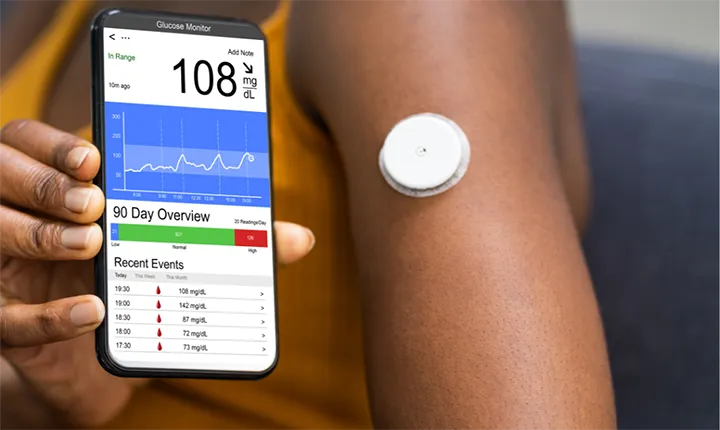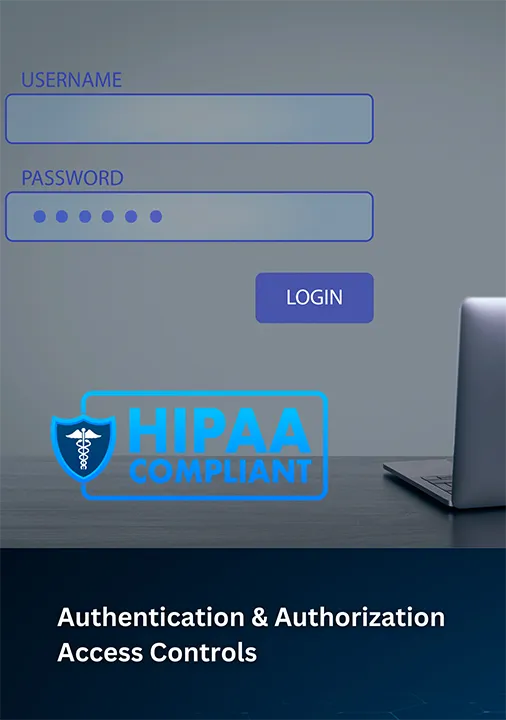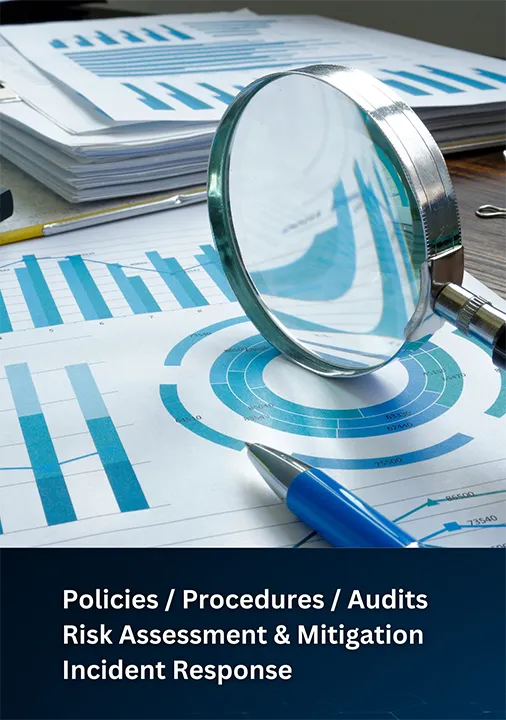
The advancement of technology in healthcare is propelled by various factors prompting the industry to address the complexity and challenges of modern medical practices, including cost considerations while embracing data digitalization, personalization, patient empowerment, and remote patient care. This multifaceted approach aims to enhance the quality of care while ensuring ethical considerations and privacy are maintained in a technologically evolving healthcare landscape.
The integration of electronic health records and healthcare data into the digital transformation landscape has paved the way for advanced data analytics, machine learning, and artificial intelligence. This synergy of technologies enhances the infrastructure, enabling actionable insights that drive informed decision-making, resulting in personalized healthcare solutions that significantly improve diagnostics and ultimately elevate the quality of patient care.

The advent of cutting-edge medical technologies has undeniably enhanced diagnostics and treatments yet poses a challenge to ensure that the human touch and the patient-provider relationship remain at the forefront.
The challenges include the need for smooth and uninterrupted data exchange among healthcare institutions to ensure seamless continuity of patient care, enable medical professionals to make informed decisions and provide optimal treatment. The cost and affordability of initiatives to implement advanced technology and upgrade existing infrastructure are pivotal concerns that require careful consideration. Data reliability and accuracy are paramount in healthcare, necessitating rigorous clinical validation processes to ensure the information exchanged is dependable. Quality and efficiency of healthcare delivery systems are dependent on addressing these multifaceted challenges.
Building and maintaining trust, displaying genuine empathy, and fostering clear and meaningful communication with patients are fundamental aspects of healthcare delivery. Achieving harmony between these timeless qualities and healthcare technology advancements is critical to assuring patients receive compassionate, empathetic, and technologically advanced care integral to their well-being.

Professionals in healthcare are faced with the daunting task of sifting through an abundance of data from EHRs, medical devices, and wearable technologies to discern meaningful insights and trends.
Data overload not only strains healthcare providers' resources but also introduces potential risks of burying crucial insights beneath sheer volume. To provide effective, evidence-based medical care in the data-driven era, it is imperative that data is managed effectively and utilized efficiently.

The complexity of EHR interfaces results in navigation inefficiency and an inability to effectively capture and retain comprehensive information. Lack of Interoperability among EHRs constitutes to inefficient data exchange resulting in fragmented patient information across healthcare systems.
Documentation of encounters and the Influx of alerts and notifications in EHRs can lead to 'Alert Fatigue,' forcing providers to overlook critical alerts necessitating attention and response.

Healthcare professionals' ability to effectively navigate the digital platforms is intricately linked with patient care quality. The proliferation of healthcare applications offers tools to enhance patient outcomes, but only if used effectively.
Digital platforms and tools have become central to healthcare delivery and management, requiring users to understand privacy and security protocols. The reliance on technology mandates continuous learning and training in tools, processes, and workflows to adopt and get acquainted with!

In the realm of healthcare, where every moment is precious, there's a palpable tension among providers. The integration of new technologies into any workflow or system invariably brings with it a set of challenges.
Providers recognize the potential benefits of digital tools but grapple with finding and allocating the necessary time for training and support. This dilemma illustrates the importance of prioritizing efforts toward improving digital literacy skills and the resistance to doing so.

For smaller healthcare practices and resource-limited settings, the financial burden of implementing and sustaining new technology, tools, and processes can be particularly daunting.
Balancing cost-effectiveness and achieving a positive return on investment (ROI) requires careful evaluation of the potential benefits Vs costs associated with technology and tools. Practices operating on tight budgets need to carefully weigh the upfront costs and consider the ongoing expenses tied to maintenance, updates, and training.

Providers shoulder the administrative burden of efficiently managing patient schedules, navigating prior-authorization complexities, and ensuring seamless insurance coverage and claims processing.
Providers grapple with administrative responsibilities encompassing meticulous EHR documentation, precise assignment of billing codes for reimbursement, managing prescriptions, orchestrating referrals and care coordination, comprehensive follow-up care, and counselling.

Healthcare is not just about treating illnesses; it's also about managing a slew of administrative duties that often coincide with the primary task of patient care. These dual pressures result in heightened levels of occupational stress, burnout, and poor work-life balance among healthcare providers.
Converging responsibilities undermines providers' well-being, leading to inefficiencies. The repercussions are profound: as effectiveness diminishes, so does patient care quality and strain the entire healthcare system.

The synergy of technology and human expertise holds the potential to effectively address challenges in healthcare, benefiting both providers and patients alike. In addition to bridging gaps, combining human expertise with technology can enhance efficiency, accuracy, and effectiveness, allowing healthcare providers to save time and money, recover from burnout, mitigate stress, and improve work-life balance.
Syncpoint architects and implements transformative healthcare solutions, integrating people's expertise with state-of-the-art technology to empower healthcare providers to deliver high-quality, efficient care. Solutions that bridge the gap between human intelligence and digital capabilities, offering healthcare providers a dynamic toolset to streamline administrative tasks, access and handle data with ease, enhance in-person patient engagement, and foster effective communication.




Value-driven management is at the core of Syncpoint's principles, emphasizing sharing, teamwork, and ownership. In everything we do, we strive for excellence and adhere to the highest professional standards
Transparency in our operations underpins the solutions we deliver. Trust and integrity are our steadfast commitments, and we strive to provide the highest possible level of care to our valued providers.

Syncpoint's healthcare services are built upon our foundational principles, strongly emphasizing a provider-centric approach revolving around prioritizing provider focus and active engagement.
We are committed to collaborating with our providers to co-create values, ensuring that their distinct needs and preferences are seamlessly integrated into our services. We pair our relentless dedication to service excellence with a resilient implementation team, fostering collaborative efforts with our providers to deliver the utmost standard of care and support.

Our approach to service combines technology and human expertise, leveraging analytics, insights, and recommendations to craft personalized workflows aimed at optimizing processes.
Syncpoint’s proprietary tools facilitate a seamless collaboration between advanced technology and human expertise. By offering highly personalized and exceptional services, we stand at the forefront of innovation and ultimately enhance the quality of care delivered.
Healthcare, a sector deeply interwoven with human lives, demands a delicate balance of precision, compassion, and efficiency. With the sprawling complexities of administrative duties, patient interactions, and intricate workflows, the need for transformative solutions has never been more palpable. In today’s bustling healthcare marketplace, countless applications and tools pledge solutions. However, beneath the surface lies an array of gaps—subtle yet significant discrepancies that impede optimal operations.
Syncpoint, while recognized for its proficiency in virtual assistant services, is broadening its horizons to address the multifaceted challenges of the healthcare industry. Our vision transcends beyond coding applications; it's about scripting a brighter, efficient, and more connected future for healthcare. Leveraging technology and people expertise, Syncpoint crafts tools and applications tailored to enhance patient care quality. These innovations aim to alleviate the constraints and stressors that both healthcare providers and facilities grapple with in their daily practice and operations, championing a more streamlined and efficient healthcare ecosystem.
Syncpoint guarantees its innovations are not only advanced but also universally accessible. Upholding this inclusivity ensures that healthcare facilities, irrespective of size or geographical location, can harness the power of modern technology to deliver exceptional patient care. Our tools and applications, thoughtfully crafted, strive to streamline workflows, reduce duplication, and advocate for practices rooted in evidence. With a Cost-Effective approach, Syncpoint ensures that financial barriers don't limit access to top-tier tools.
Fortified security, a cornerstone of Syncpoint's offerings, meticulously protects patient data and sensitive information with unparalleled diligence. Complementing all these attributes is the Unwavering Reliability of our tools. Our tools and applications remain steadfast in critical patient care situations, ensuring uninterrupted operation and unwavering precision.





Compliance and Security are of paramount importance in healthcare. Data handling is sensitive and can result in serious security breaches and impact patients if mishandled. Beyond immediate risks to patients, non-compliance can result in significant legal consequences, financial penalties, and reputational damage for healthcare providers and institutions. Ensuring strict adherence to regulations and robust security measures not only safeguards the well-being and trust of patients but also upholds the integrity and viability of the entire healthcare ecosystem.
Syncpoint’s secure HIPAA-compliant platform aims at improving patient care quality and efficiency while ensuring the confidentiality, integrity, and availability of sensitive information created, received, maintained, and transmitted.
We prioritize effective risk management by implementing a comprehensive threat governance framework to identify potential risks, assess impact, develop mitigation strategies, continuously monitor the risk landscape, and periodically review to ensure robust protection. By adapting and applying proven quality management solutions, we continuously monitor critical benchmarks, measure performance, and report on findings, all in an effort to optimize processes, increase efficiency and relentlessly improve the quality of deliverables.



